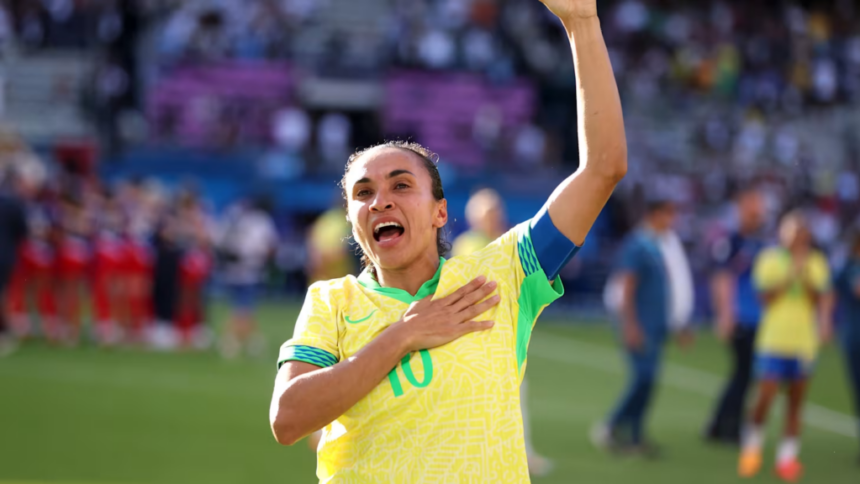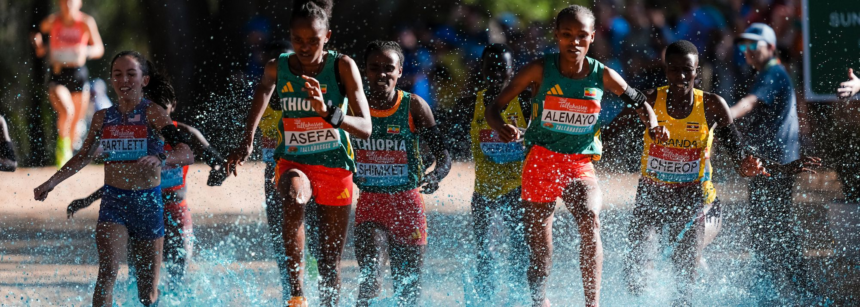DISCLAIMER: It is important to note that neither the author nor the publication “Affirmations Media” holds the rights to the images and videos included in this article. Nonetheless, appropriate credit has been attributed where applicable. Thank you please enjoy the READ! let us know in the comments what you think of the trajectory of women’s football across the world.
Women’s football is emerging as a powerful force, capturing attention and steadily gaining prominence worldwide, which is a remarkable development.
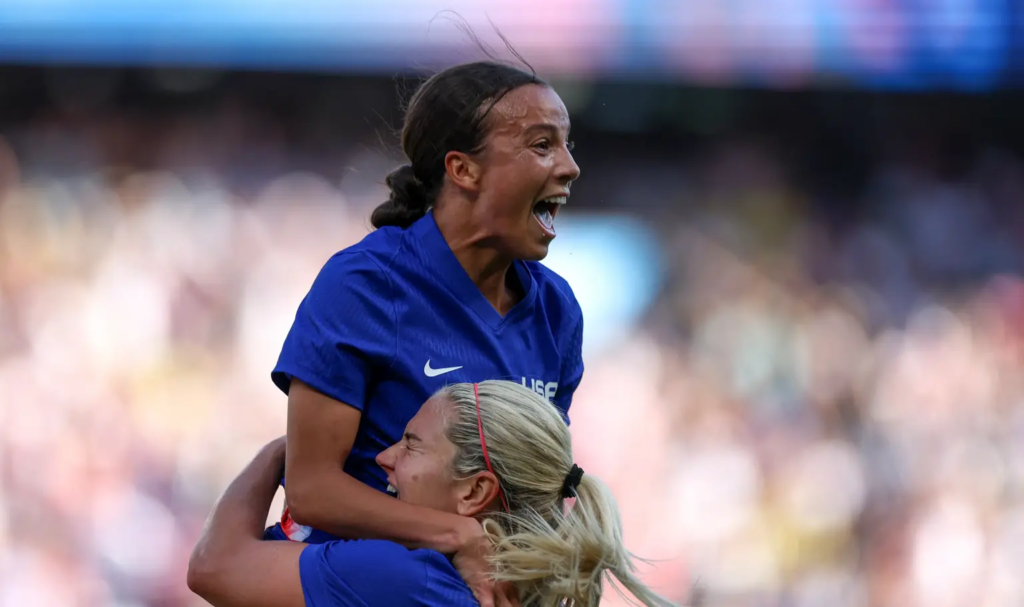
The United States Women’s National team, under the leadership of the remarkable Chelsea women’s former coach Emma Hayes, has secured the gold medal at the recent Olympics in Paris. Meanwhile, Brazilian legend Marta Viera da Silva concludes her Olympic journey with a silver medal after narrowly missing the gold in the final against the USA. Additionally, Jess Carter has made a surprising exit from Chelsea to join NJ/NY Gotham FC in New Jersey, as the CAF Women’s Champions League, Cosafa qualifiers unfold. There is a significant amount of activity occurring in women’s football at this time, and we have compiled some news that may captivate fans of the sport.
Confederation of African Football, Women’s Champions League (CAF, WCL), COSAFA Qualifiers
The CAF, WCL, and Cosafa Qualifiers are currently underway in Malawi, now advancing to the semi-final phase. Herentals Queens from Zimbabwe are set to compete against Gaborone United from Botswana. The victor of this encounter will meet either the University of Western Cape or the Young Buffaloes from Eswatini, as each team aspires to secure a place in the finals and ultimately claim the title, which would grant them entry into this year’s CAF Women’s Champions League.
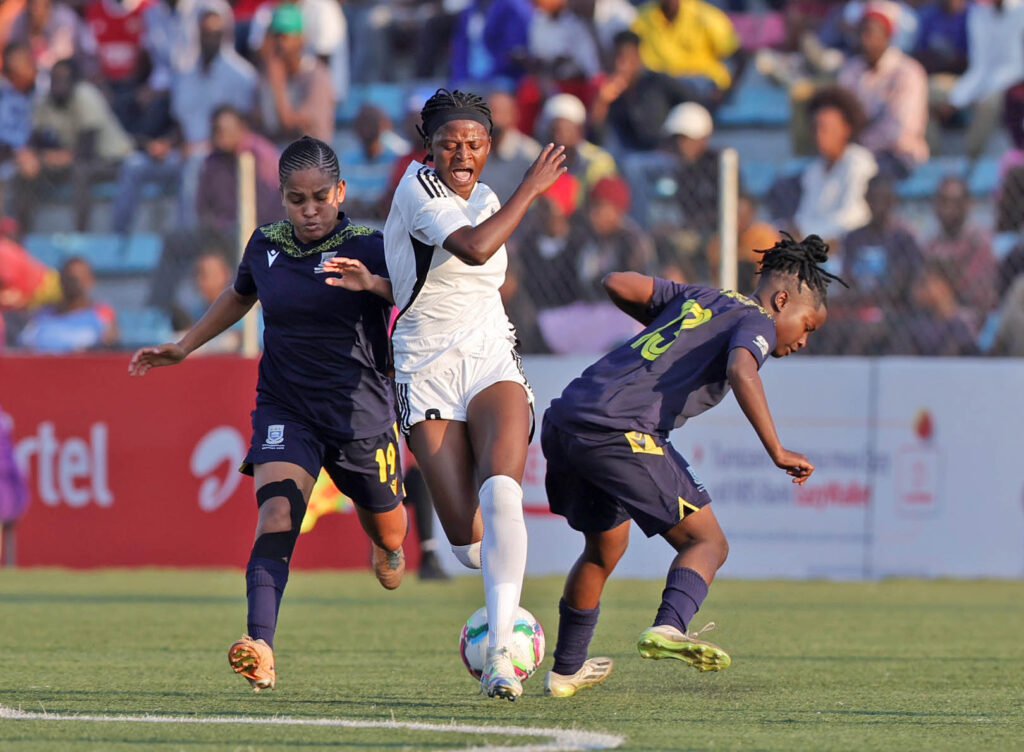
The University of the Western Cape has emerged as one of the most captivating teams to observe throughout this tournament, with five of its players selected for the Group Stage’s Best Eleven. Goalkeeper Siphesihle Dlamini earned a spot in the best eleven due to her remarkable goalkeeping skills displayed during the group stages. Bongeka Gamede, Fikile Magama, and Amogelang Motau played crucial roles and became fan favorites, alongside their teammate Noxolo Cesane. Both Cesane and Motau, representing Banyana Banyana, the South African women’s national team, have significantly contributed to UWC’s success in this competition.
Group Stage Best 11 and Coach
Siphesihle Dlamini: University of Western Cape
Bongeka Gamede: University of Western Cape
Tumbare Egnes: Herentals Queens
Alice Moyo: Herentals Queens
Amogelang Motau: Univeristy of Western Cape
Fikile Magama: University of Western Cape
Noxolo Cesane: University of Western Cape
Keitumetse Dithebe: University of Western Cape
Siphilisile Ndlovu: Young Buffaloes
Tenanile Ngcamphalala: Young Buffaloes
Faith Chinzimu: Ascent Academy
Coach: Thinasonke Phakamile Jessica Mbuli
The Football Association has transferred the governance of the premier two divisions of women’s football in England to Women’s Professional Leagues Limited (WPLL).
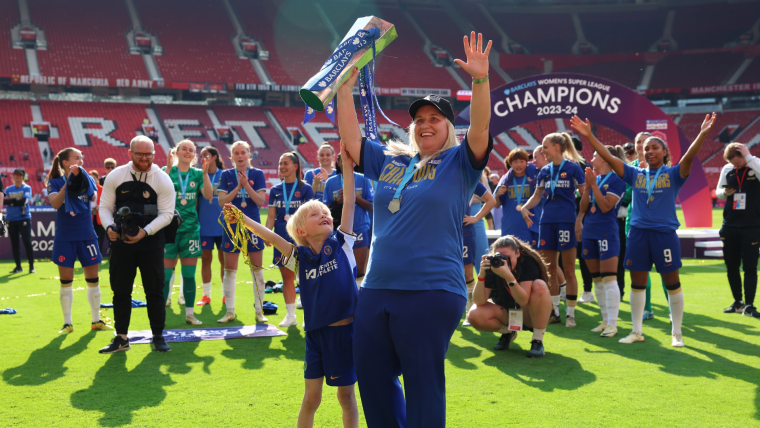
The Women’s Professional Leagues Limited, under the leadership of Nikki Doucet, will take charge of the Women’s Super League and the Women’s Championship. The WPLL announced that it will receive support from the Premier League via a cooperation and funding agreement, which encompasses a £20 million interest-free loan.
Sky Sports reports a new dawn for the professional game of women’s football in England: “Ownership of the Barclays Women’s Super League and Barclays Women’s Championship has been transferred to WPLL from the FA in time for the 2024/25 season”.

WPLL Chief Executive Officer Nikki Doucet, former general manager of Nike Women UK & Ireland, said: “Women’s football in England has witnessed unprecedented growth in recent years, marked by increased fan engagement, rising attendance at matches, and a surge in participation at all levels.
“We are fiercely committed to building on this momentum by creating a thriving landscape which prioritizes the welfare and development of players, fosters and excites a vibrant fan community, and nurtures the sport’s growth.
“We look forward to building upon this solid foundation and elevating women’s professional football in England to unprecedented levels,” Nicki concluded.
AC Milan has made history as the first club in Europe to secure contracts for players who are pregnant.

AC Milan, the Italian giants have made an impressive move and a historical one by becoming the first club in Europe to guarantee one-year contract extension should one of their players get pregnant. “Players will be given one-year extensions ‘on the same economic terms’ as their existing deals”, the club reported.
This is massive move as the new policy will protect players who become pregnant while at the club, meaning players “don’t have to make a choice” between being a mother or a footballer.
The club recently announced that it will guarantee contract renewals for players who are in the final year of their contract and also help with childcare and expenses for their children and companions, so the players can focus on playing.
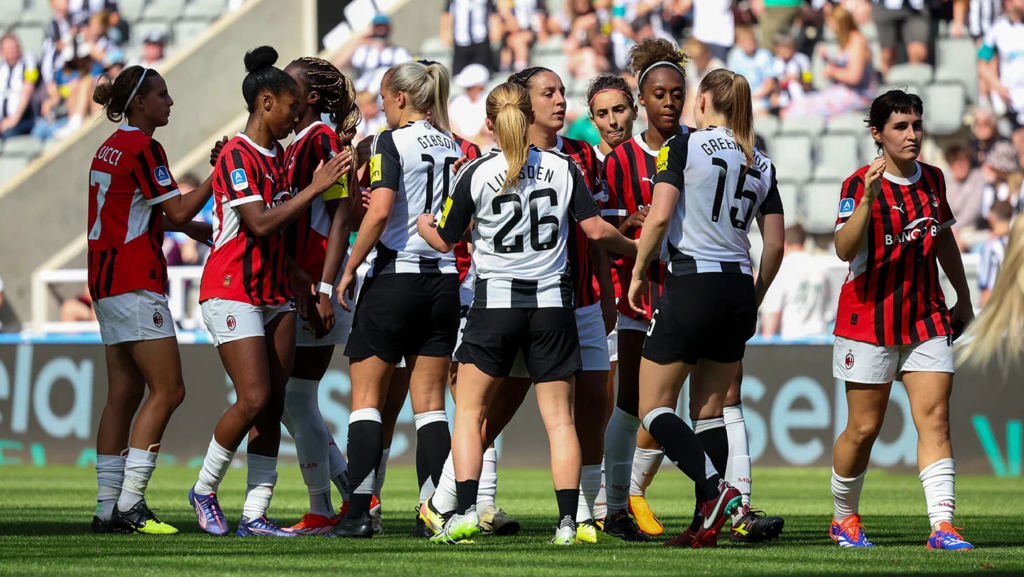
The club became the first club in Europe to adopt such measures after FIFA launched new standards to protect pregnant female footballers in May.
“The choice of being a mother or a player is one that, in the past, a lot of women have had to make,” Scotland international and AC Milan captain Christy Grimshaw told BBC Sport.
“To be granted this opportunity feels extra special. You might be in the last year of your contract and feel a little scared about becoming a mother. It’s taking that choice away from us. We can feel comfortable.
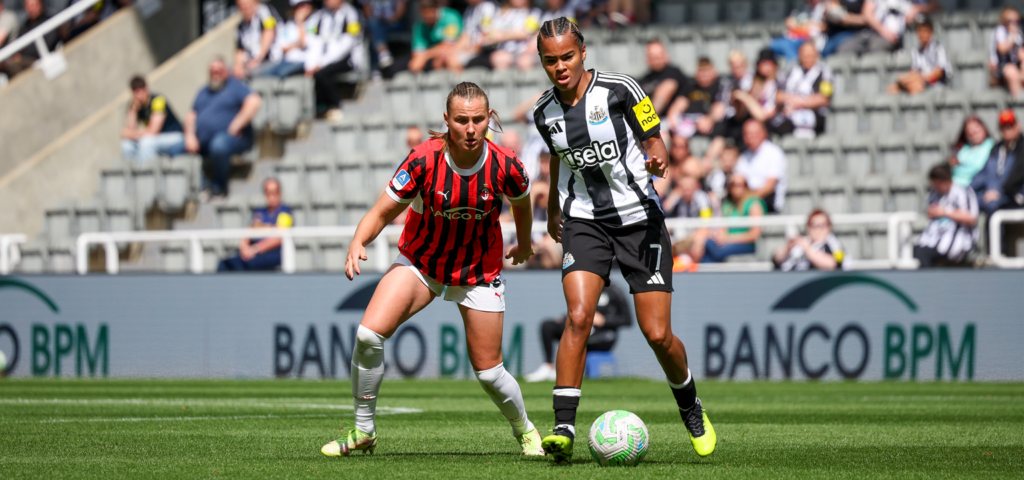
“Becoming a mother as a woman is a beautiful thing. I’m hoping this is the start of something special in women’s football and women’s sport.”
AC Milan’s head of women’s football, Elisabet Spina, added: “The club has always shown great attention to the wellbeing of its female players and staff members, both professionally and personally.
“As a huge club, we have the responsibility to try to develop women’s football. That’s why every year we invest in a dedicated project.
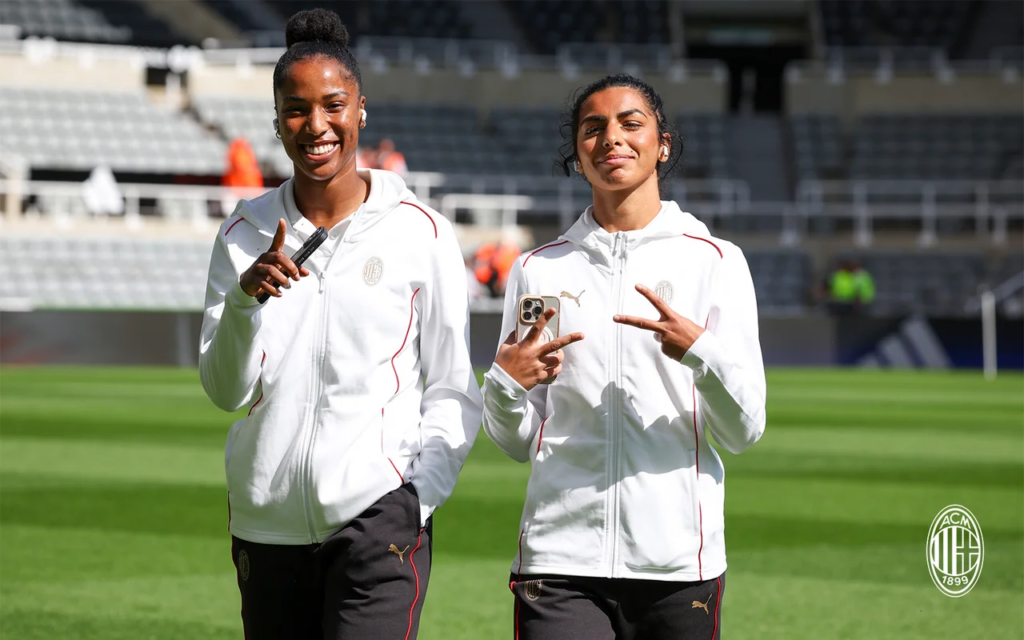
“I hope this project in particular can help not only women’s football improve, but women’s sport and female professionals.”
The modifications implemented by FIFA aim to support both players and coaches in various facets of motherhood. This initiative begins with a minimum of 14 weeks of paid maternity leave for coaches, a previously exclusive benefit to players. Additionally, players and coaches will be entitled to a leave period in the event of adoption, and family leave will be accessible for parents who are not the biological mother.
Nothing has changed for Spanish female footballers, says Aitana Bonmati.

The reigning Ballon d’Or Feminin, who was awarded the Golden Ball at the 2023 FIFA Women’s World Cup and significantly contributed to Spain’s victory in the World Cup in August 2023, has expressed that the situation for female footballers in Spain remains unchanged despite their achievement of winning the FIFA World Cup, the most esteemed title in football. Aitana remarked that Spanish women footballers continue to face the ‘same issues’ as they did before the World Cup.

Aitana Bonmati insisted things “have not changed” for women’s footballers in Spain, despite the public attention on issues in the aftermath of Spain’s 2023 Women’s World Cup victory.
Jenni Hormoso, who received a kiss on the lips from Luis Rubiales during the final in Sydney, has subsequently lodged a legal complaint against the former President of the Spanish Football Federation. Following this incident, she has taken a prominent role in advocating against sexism in football within the country, a movement that contributed to the dismissal of former head coach Jorge Vilda.
Bonmati disclosed to BBC Sport that, alongside the widely recognized challenges at the national level, similar issues are also present within the domestic framework.

“There is not anything that has changed,” said the Ballon d’Or winner.
“I would like to say that everything has changed and the World Cup gave us more things – but I cannot say that. I compare [it to] when England won the Euros – everything changed.
“But we won the World Cup which I think is bigger than winning the Euros and no, it never changed, especially in the league. We are having the same problems as always. We have a lot of problems.”
The challenges faced by the Spain women’s national team have been thoroughly recorded, including the players’ decision to boycott the team during the World Cup year, as well as the legal proceedings and notable dismissals that followed the events after the final match.
Rubiales is set to stand trial for his non-consensual kiss, despite his persistent claims of innocence regarding the allegations.
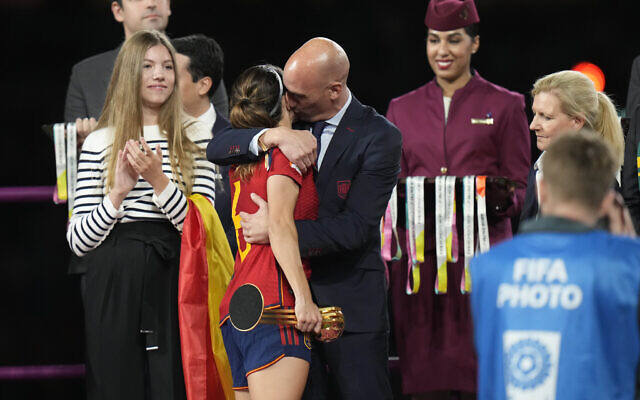
In recent years, numerous Spanish players have transitioned to England to compete in the fully professional Women’s Super League.
“First of all, I think the people are thinking of playing in England because you in England are doing things so well. You treat women’s football well. You give power to the players and the league,” Bonmati added.
“For example, here in Spain, I cannot say the same. I see also that the league in England is competitive and every year they are putting more money into it to develop it. They are making the league more attractive.”
Selma Bacha, the French International successfully underwent surgery.
Selma, the French international footballer who plays as a left back or winger for the Ligue 1 club Lyon and the France National Team, announced on social media that she underwent surgery on Tuesday, August 20, due to discomfort in her ankle.
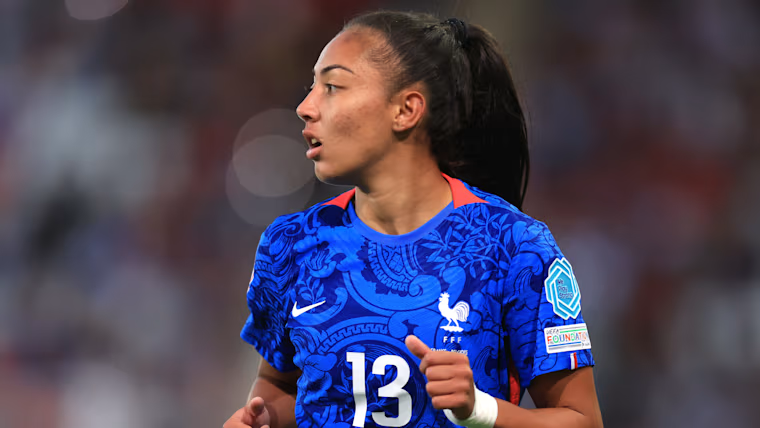
Selma got injured in a 1-0 loss to Australia in the Women’s World Cup warm-up game on the 14th of July in 2023.
In spite of her injury, Selma persevered in competing for both her national team and her club. She participated in the recent Olympics held in France and reached the finals of the UEFA Women’s Champions League against Barcelona, demonstrating her exceptional skill and resilience. Additionally, she contributed to her club Lyon’s victory in the 2023/24 league.
Following her surgery, Slema shared a post on her Instagram profile, which included a translation., “On July 14, 2023, I injured my ankle. Despite that, I prioritized my goals in club and selection. I’ve made the choice to grit my teeth by putting off the surgery I needed. Everything went well, time for rehabilitation! Thank you for your messages.”
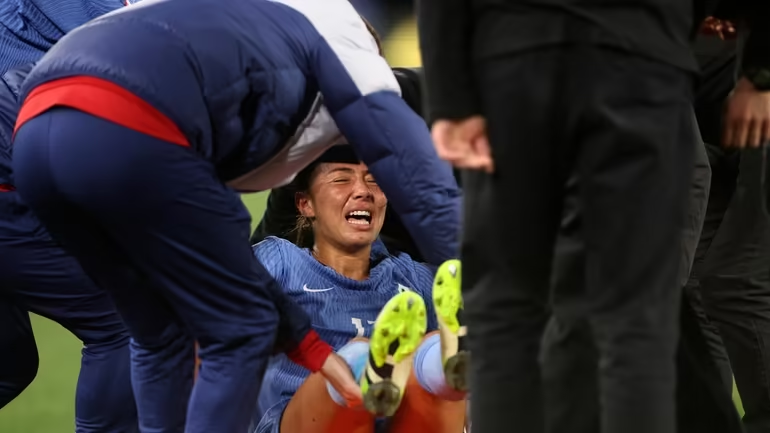
Undoubtedly, not only supporters of Lyon but also football enthusiasts as a whole will eagerly anticipate the return of the thrilling 23-year-old, a four-time UEFA Champions League champion, to the pitch to showcase her exceptional skills once again.
Sonia Bompastor Era

A new chapter has begun at Chelsea Women’s Football Club with Sonia Bompastor stepping in as head coach following Emma Hayes’ departure to lead the US Women’s National Team. Chelsea is undoubtedly in capable hands, as Sonia, a former French footballer and manager, possesses extensive knowledge of the sport. She holds the distinction of being the first individual to win the UEFA Women’s Champions League both as a player and as a manager.
In her inaugural interview with Chelsea, Sonia expressed her enthusiasm for collaborating with the team and building upon the remarkable achievements of Emma Hayes. She aims to pursue all available titles with Chelsea, including the Champions League, which has thus far eluded the women’s team despite their near successes.
This season, all eyes will be on Sonia and her squad, especially after their impressive run of five consecutive league championship titles. Under Sonia’s leadership, the team has already made a strong start during their current tour in the United States, securing a 3-1 victory against NJ/NY Gotham in New Jersey, with Johanna Rytting Kaneryd scoring twice and Aggie Beever-Jones adding a third.
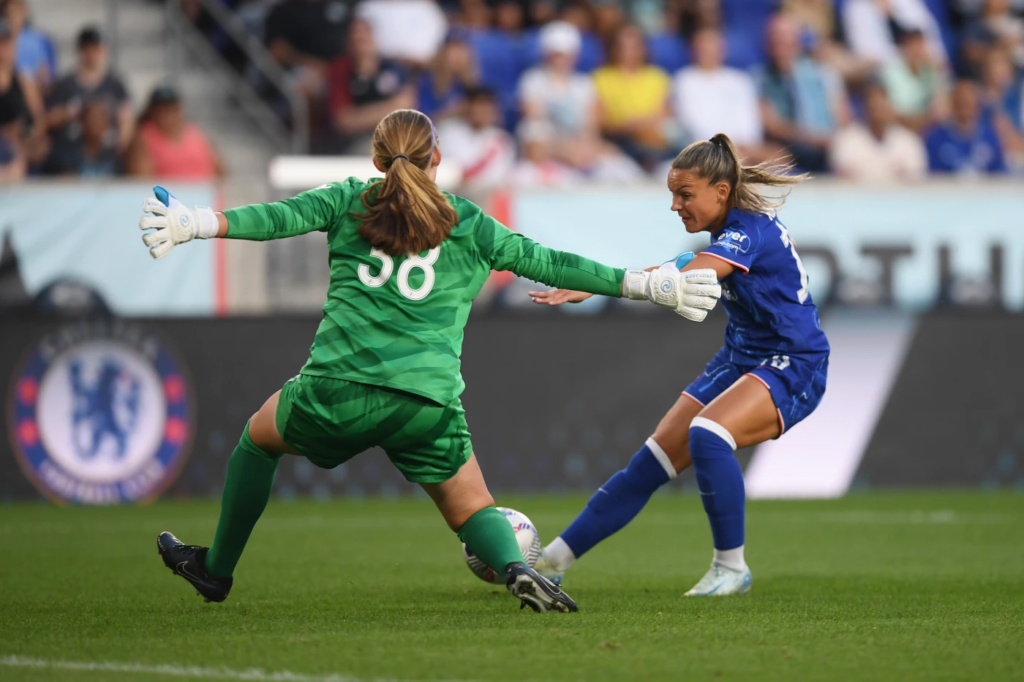
Ironically, Gotham’s goals came from Jess Carter, who recently made a surprising exit from Chelsea. This move caught many off guard given her pivotal role in the previous season and their Champions League campaign. Her defensive leadership will certainly be missed, particularly at a time when the team could benefit from her experience in their ongoing pursuit of the elusive Champions League title, despite being recognized as one of the premier women’s teams globally.
Chelsea bolstered their Squad.

Chelsea, the reigning champions of the Women’s Super League (WSL), have strengthened their roster as they aim for success in European competitions. The summer recruitment commenced with the signing of Spanish midfielder Julian Barter, who joined from Barcelona on a three-year contract with an option for an additional year. Additionally, dynamic French forward Sandy Baltimore made her move to Chelsea on a free transfer from Paris Saint-Germain, where she spent eight years. At just 24 years of age, she represents a significant acquisition for the club on a four-year deal.
Oriane Jean-Francois has also joined Chelsea from PSG, reuniting with her former teammates Baltimore and Ashley Lawrence, who have already had a successful year at the London club.
Another notable addition is full-back Lucy Bronze, who arrives from Barcelona, boasting an impressive resume that includes five UEFA Women’s Champions League titles. The England international has signed a two-year contract with Chelsea.
Furthermore, the club recently announced the signing of Louna Ribadeira, who will initially remain on loan at Paris FC for the 2024/25 season.
In addition, Sam Kerr has extended her contract with Chelsea, ensuring her presence in West London until 2026. The 30-year-old forward, who joined the Blues midway through the 2019/20 season, has since contributed to the team’s success, winning five Women’s Super League titles, three FA Cups, two FA Continental Tyres League Cups, and one Community Shield. The club has felt her absence as she undergoes rehabilitation following an injury that has ruled her out of the Paris 2024 Olympics.
Marta’s last Major Tournament ends with a Silver Medal

In this edition of our global women’s football agenda, we conclude with none other than Marta, the Brazilian legend who has not only transformed the women’s game but has also served as an inspiration for the new generation of female footballers.
At 38 years old, Marta announced before the Paris Games that this would be her final significant tournament representing the national team. Unfortunately, there was no ideal conclusion for a player who has long been a symbol of women’s soccer, as the U.S. once again relegated her to a silver medal finish.
The experience is all too familiar for the six-time world player of the year, as the United States has consistently posed a significant obstacle to her international aspirations.

Adding Paris 2024 to the list alongside Athens 2004 and Beijing 2008, on each of these occasions, Marta and the Brazilian team fell short of securing gold, finishing behind the Americans.
Consequently, her three silver medals represent the highest achievements in her international soccer career, complemented by a runner-up medal from the 2007 World Cup. Despite her remarkable talent, evidenced by a record 119 goals for her nation, she has yet to capture a major international title.
However, she came remarkably close during a challenging final campaign.
There were moments of despair when she believed her Olympic journey had concluded with a red card against Spain in the group stage. This was followed by tears of joy as she witnessed Brazil eliminate the host nation, France, in the quarterfinals, only to experience further frustration when her appeal to reduce her suspension was denied, causing her to miss the semifinals.
Emotional scenes unfolded once more as she embraced Brazil’s coach, Arthur Elias, on the field at the conclusion of Saturday’s final, receiving applause as she departed the stage.

“The trust we placed in coach Arthur’s work and the way we were able to deal with the ups and downs of this competition — athletes were injured, I had to miss two games, people started talking negatively: ‘Marta has to play, Marta doesn’t have to play.’
“It wasn’t the time for that, the time was to close ourselves off and we really tried to minimize these obstacles, we closed ourselves off and we reached the final.”
Marta expresses that it is time to pass the torch to the next generation; however, as she departs, she reiterates the need for increased support for women’s soccer in Brazil.
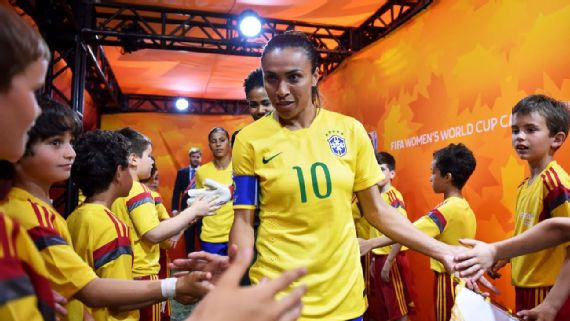
“This medal here represents the recovery of the pride we have in seeing that women’s football in Brazil can be competitive,” she added. “There’s talent, but it needs to be better valued, damn it! There are a lot of people who don’t watch women’s football, but when we lose they’re the first to comment, the first to go and talk about it.
“All the titles we’ve won, whether individual or collective, in women’s football, are for those people who have always believed in us from the first moment, and many of whom were in the stands here giving us that support, you know, family, friends. We owe this to them and I share my gratitude with them. We don’t owe anything to those others who take advantage of the moment and talk a lot of rubbish.”

Following 185 appearances for Brazil, which encompassed six World Cups and six Olympic Games, Marta, a distinguished figure in the sport, departed the field with the satisfaction of having accomplished everything for the game. She left with a heart full of pride, as her Olympic journey concluded with a silver medal.

